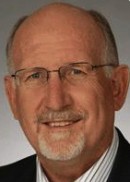Guest Column: Well-crafted laws can ensure a more peaceful community
 (Orlando Sentinel, August 7, 2013)
(Orlando Sentinel, August 7, 2013)
By James Coffin,
The bulk of the world’s population seems to believe in the right of both individuals and nations to defend themselves against aggressors — even to the point of using deadly force.
The question for most isn’t: Is deadly force ever justified? Rather, it’s: How extreme must the circumstances be before such justification exists?
In the wake of World War II, as those in the international community surveyed the devastation, they used the experience to re-examine and codify what they felt was and wasn’t acceptable behavior in the brutal exercise we call war. The Geneva Convention (1949) came into being as a result, declaring that there are boundaries that can’t justifiably be breached.
But what about the taking of life in the context of individual self-defense?
Because humans can take life but can’t reinstate it, we must not readily grant ourselves a license to kill. There must be well-considered boundaries.
Given that the George Zimmerman trial and verdict so captured the attention of the entire United States, now seems an appropriate time to reflect on and re-evaluate what laws should be added, subtracted or adjusted in an attempt to forestall similar tragedies.
Let’s note just three points:
1. For me, one of the chilling testimonies in the Zimmerman trial came from a former adjunct professor at Seminole State College. His interpretation of Florida’s stand-your-ground law was that I can harass you, provoking you to hit me. Then, when the fight escalates and I, the initial aggressor, suddenly feel in danger of great bodily harm or death, I’m allowed — by law — to pull out my gun and kill you.
The drafters of the law may not have intended such an interpretation. But that’s how some are interpreting it. Even experts. And that view seems to have been held by police, prosecutors, judges and juries in an array of cases already decided. Something is wrong with this picture.
2. Police have always had some discretion in determining whether or not to make an arrest at the scene of any crime. But if the stand-your-ground defense has been invoked and seems plausible, the law specifically instructs that officers are not to make an arrest — even though someone has been killed.
By contrast, when in the line of duty a police officer takes a human life, typically the officer is re-assigned until the matter has been thoroughly investigated. And remember, these are men and women who’ve had comprehensive training in what does and doesn’t justify deadly force.
But when an ordinary citizen declares it was necessary to kill someone — and has a seemingly plausible story — he or she can go home and resume a normal routine.
It’s to the disadvantage of all concerned to force police officers into the role of on-the-spot judges concerning whether a killing was justified or not. It opens the doors to accusations of abuse.
To the average onlooker, it raises major questions concerning how seriously the police will search for evidence to disprove a “verdict” they’ve already rendered publicly.
3. One way we seek justice and accountability is through civil courts. Civil courts can be the venue for settling grievances against the government itself and grievances between individuals and/or groups.
It’s a place where actions are assessed and their impact assigned a value. It’s not uncommon for damages to be awarded in civil court even though a criminal court may have opted for acquittal.
But the stand-your-ground law blocks civil lawsuits, removing any form of redress for the family of the slain — even when the killer’s noncriminal status may have been bestowed by no higher level of jurisprudence than police officers at the crime scene.
By precluding civil-court redress in such cases, we’ve created a situation in which demonstrations of public outrage are seen as the only possible avenue to address such grievances.
A better crafting of our laws could do much to enhance both the perception and the reality of justice for all.
James Coffin is executive director of the Interfaith Council of Central Florida.
